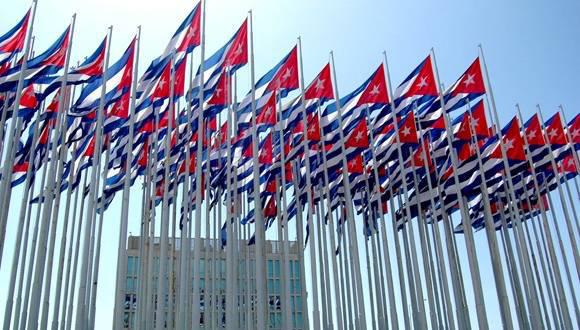
The cost of doing harm
HAVANA – Title III of the Helms-Burton Act establishes the right of Cubans, who are now U.S. citizens and whose properties were nationalized in Cuba, to make claims in U.S. courts against companies from other countries that make use of of their property through agreements with the Cuban government. In this way, these claims are equated with those of properties owned by Americans that are regulated by international agreements in their capacity as foreign companies.
Because of the problems involved in such an equalization, all U.S. presidents have extended the application of this law every six months since 1996 until the present, but now an extension of only 45 days has been adopted, supposedly to revise this decision and put it into practice.
The application of this measure entails three major problems for the United States. They are the effects on the legitimate claimants, the extraterritorial nature of its sanctions, and the difficulties it entails for the North American legal system.
Claimants from the U.S. are duly recognized by both governments. The Cuban government has always expressed the will to compensate these persons and the way to do it is part of the agenda of negotiations between the two countries. To include Cubans would multiply the claimants by hundreds of times and place the Cuban side in a position that would force them to renounce their sovereignty in order to accept it.
In response to this possibility, Cuba has already announced that if Title III were applied, it would consider any claim previously covered by the law and recognized by both governments in their negotiations as null and void. Which means that thousands of American claimants would be harmed by the application of the controversial title.
When the Helms-Burton Act was adopted many governments began talking about approving “antidote laws” that would sanction companies that abide by this U.S. measure within their territories. To placate them, the United States promised to not apply Title III, as has been the case so far.
That is why when National Security Adviser John Bolton recently announced in Miami the possible reversal of this practice, several European governments reminded the United States that this was part of an agreement that should be honored.
Another problem that suggested not applying Title III of the Helms-Burton law was what it implied for the U.S. legal system. It involves assuming hundreds of thousands of claims, whose legitimacy and amount can not be duly verifiable. And aside from creating chaos in the procedural system, a legal precedent would be set for any citizen of another country who has adopted U.S. citizenship and has properties to claim in their country of origin.
The Torricelli and Helms-Burton laws established guidelines that affected many aspects of U.S. foreign policy. Both George H. W. Bush and William Clinton opposed approving these laws because they restricted the power of the president to conduct foreign policy considerably. They finally agreed to them under much pressure, and based on electoral interests and to the detriment of constitutional precepts that regulate the separation of powers of the country, as well as international law.
It was also a stimulus for the use of unilateral extraterritorial sanctions as a mechanism for the imposition of U.S. foreign policy. And since its application on Cuba this type of policy has commonly been employed against other countries. There is even a theory built around its convenience for American hegemony.
However, few decisions have been questioned as much as Title III of the Helms-Burton Act. Apart from the legal contradiction that disregards the authority of a foreign government over its own citizens, it fundamentally interferes with the rights of other countries and hurts the United States itself.
Recently, Senator Marco Rubio proudly declared that, this time, the Trump administration would apply this policy. It’s possible. What’s most striking, though, is that given the characteristics of this administration, they’ve decided to spend 45 days thinking about it.
Undoubtedly, they are grasping at straws in search of new actions against Cuba that fit within their strategy for Latin America being encouraged by these persons within the Trump administration. But as always, this plan from the past that once appeared dead has arisen for electoral purposes.
Title III was written to satisfy the interests of the Cuban oligarchy, which became a direct component of the counterrevolution and articulation of the Cuban-American right. The Donald Trump government has incited these groups, and measures like these tend to consolidate their forces ahead of the 2020 elections.
If the application of Title III is finally approved, Cuba will run into new problems in the field of foreign investments. But these harassments are nothing new coming from their North American persecutors. And I doubt this new pressure will make a noticeable difference in the results.
However, this action will help create a new conflict for the U.S. with its allies. It will be just another foreign policy embarrassment and more questions for a government that appears to waft on everything. And it will show that in the long run, doing harm can be costly.

